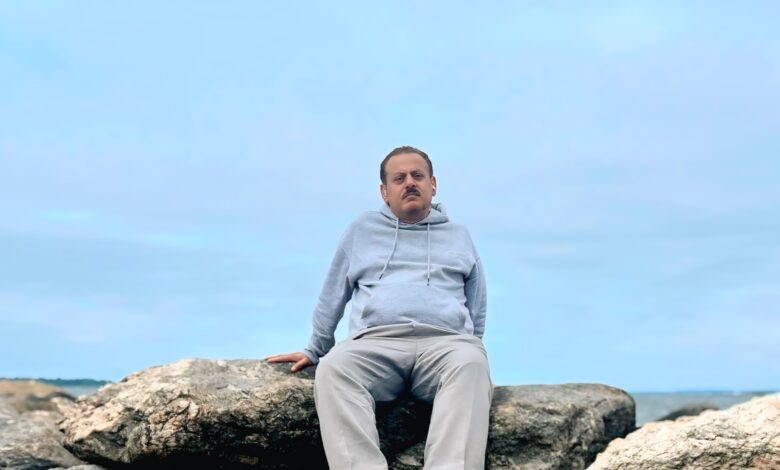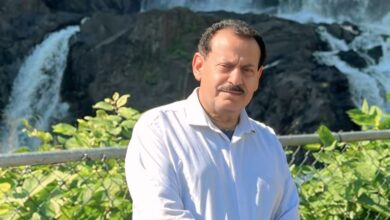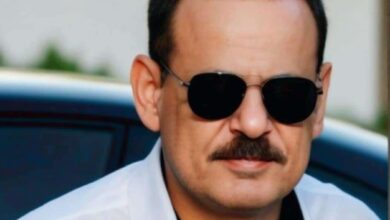The Wall of Death

Yemeni mp
Ahmed Saif Hashed
In the paratrooper training course, I remember running in the “Thunder” field until I almost vomited. Yet, I persevered in a way I never expected. During the obstacle course, we had to climb a wall over twelve meters high, all while carrying our weapons and full military gear. The only assistance for this ascent was a rope securely tied at the top of the wall.
I recall one occasion when I nearly fell before reaching the top. My strength waned to the point where it seemed easier to fall than to continue climbing. A heavy fatigue overwhelmed me, and my legs struggled to maintain their grip on the wall. How could I ascend? My energy was depleted, my balance faltering, and climbing seemed impossible unless I could elevate my spirit.
My hands trembled, yet they fought against the imminent fall, which felt just an arm’s reach away. My palms were drenched in sweat, nearly bursting from the effort as they clung desperately to the thick rope. My silence, filled with stubborn pride, refused to call for help. I felt a shame that would consume me if I dared to seek assistance.
I became acutely aware that if I fell, it would be fatal. I understood that if my hands faltered even slightly, I would descend completely, committing the final folly of my life—a fatal folly that could leave me with a permanent disability. This profound realization in such a critical moment, coupled with a fierce instinct to survive, ignited a surge of adrenaline within me against this undeniable threat. I wrestled with the moment and overcame this deadly challenge.
I pushed through the climb, surpassing the danger, and reached the top of the wall, feeling as if I had performed a miracle that saved me from certain death or permanent impairment. In that ascent, I faced a genuine challenge, grappling to snatch life from the jaws of a predator. I realized that between life and death lies a moment and a decision. I learned that between victory and defeat is merely a little resilience and patience in a decisive moment. To be triumphant or vanquished requires just a touch of challenge, perseverance, and desperation for life, hope, and survival.
I recalled this lesson during the same course when I faced my colleague, Sanad Al-Rahwa, in an arm-wrestling match to see who was stronger, more resilient, and more patient. It was a friendly duel, witnessed by dear colleagues. Between my victory and defeat lay a fleeting moment, a decisive pause I stretched with my last breath, just as my hand was about to fall in an instant. I later told Sand, “If you had only held on for one more second, you would have defeated me soundly.”
Today, I remember reaching the peak of the wall, which I fondly call the “Wall of Death.” I recall it in every struggle. I think of it as I confront authorities more grotesque than others—various powers that do not compete except in their ugliness towards the citizen. These authorities wield all means of strength, oppression, and subjugation, while I possess nothing but a will that fights desperately for a dignified life or the glory of a noble death if death must have its say.
When all circumstances and frustrations gather against me, and despair envelops my vision like a dark shroud, weighing heavily on my breath, urging me to surrender, I recall a saying I once read: “Before you give up, think about why you have held on for so long.” I then evoke within myself a resistance to the impossible, a defiant stubbornness, and a preference for glorious death over a fatal surrender or a more lethal defeat.
* * *






